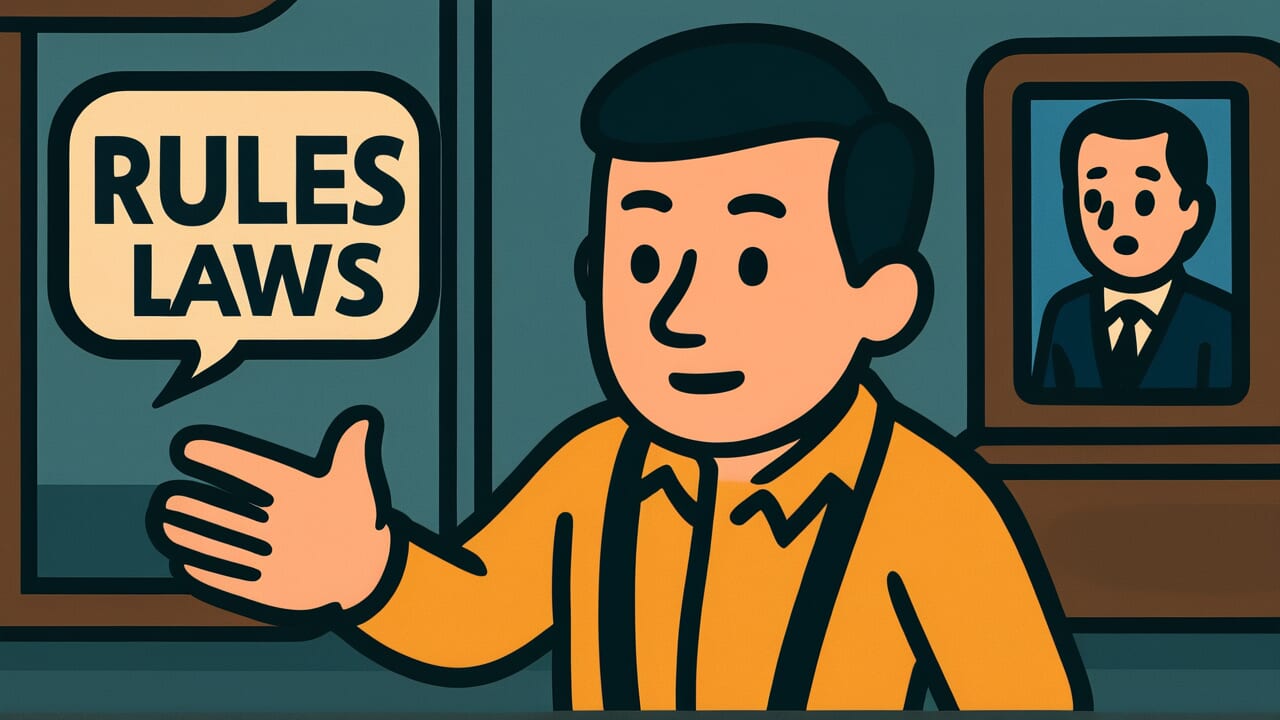How to Read “When entering a country, first ask about its prohibitions”
Kuni ni itte wa mazu kin wo toe
Meaning of “When entering a country, first ask about its prohibitions”
This proverb teaches that when you enter a new place or environment, you should first check the local rules and customs.
Unfamiliar places have their own unique rules and practices. Acting without knowing them can lead to unexpected trouble.
This applies to many situations. Starting a new job, moving to a new neighborhood, or traveling abroad are all examples.
People use this expression when they want to emphasize the importance of respecting other cultures and customs rather than judging everything by your own standards.
In today’s world, globalization has increased opportunities to interact with people from different cultural backgrounds.
This makes the proverb’s message about “having a humble attitude to learn” more important than ever.
Origin and Etymology
This proverb likely comes from the phrase “入境而問禁” found in the “Quli” chapter of the ancient Chinese text “Book of Rites.”
It means “when entering a territory, ask about prohibitions.” The teaching is that when entering another country’s domain, you should first inquire about its laws and rules.
In ancient China, each country and region had its own laws and prohibitions. Breaking them unknowingly could result in severe punishment.
Travelers and envoys protected themselves by confirming local rules before entering new territories. This wisdom was passed down to Japan and took the form “When entering a country, first ask about its prohibitions.”
In Japan’s Edo period, each domain had its own regulations. Travelers had to confirm domain rules at checkpoints.
Breaking prohibitions unknowingly could lead to punishment or even death. This proverb was passed down as practical wisdom for self-protection, beyond mere etiquette.
It contains the deep insight of our ancestors that in places with different cultures and customs, a humble attitude to learn is most important.
Usage Examples
- When I arrived at my study abroad university, I thought “When entering a country, first ask about its prohibitions,” so I checked the local rules first
- Since I was assigned to a new department, I asked my seniors about work procedures in the spirit of “When entering a country, first ask about its prohibitions”
Universal Wisdom
Everyone tends to believe that the common sense from their upbringing is “universal truth.”
But in reality, what’s right changes when the place changes. This is a truth humanity has experienced repeatedly throughout history.
This proverb teaches the importance of humility when entering different environments. People often try to push their own ways in new places.
This might be an instinct to protect themselves. But our ancestors realized something important.
What truly protects you is not self-assertion, but the attitude of trying to understand others.
What’s interesting is that this proverb says “ask about prohibitions.” Not “learn the customs,” but “ask about prohibitions.”
This means you should prioritize knowing what not to do. This is remarkably practical wisdom.
The shortest route to avoiding failure in a new environment is knowing the taboos.
This teaching has been passed down through the ages because human society has always maintained diversity.
And to coexist peacefully within that diversity, an attitude of recognizing and respecting each other’s differences is essential.
When AI Hears This
The moment you enter a new environment, countless behavioral choices spread before you.
Information theory calls this a “high entropy state.” Entropy measures uncertainty, and it increases with more options.
If 100 behaviors are possible, finding the right conduct requires enormous trial and error.
But when you learn the “prohibitions” first, the situation transforms completely. If 10 out of 100 options are forbidden, you immediately narrow it down to 90.
This is what information theory calls “prior entropy reduction.” What’s important is that prohibitions, or “negative information,” actually provide the most efficient information compression.
Listing everything you can do requires far more information than just conveying what you cannot do.
The same principle works in machine learning. Setting constraints first dramatically narrows the search space and speeds up reaching the optimal solution.
When humans ask about prohibitions in new places, they instinctively understand this efficiency.
Knowing the boundaries makes the free area inside them clear. Prohibitions as constraints actually draw the outline of freedom most quickly.
Lessons for Today
This proverb teaches you the importance of flexibility for surviving in an age of change.
Job changes, transfers, moving, joining new communities. Life brings many moments when your environment changes.
Each time, rather than clinging to your own ways, the attitude of humbly learning new environment rules leads you to success.
Especially in today’s world with developed internet and social media, online communities have their own unique cultures and manners.
When starting to use a new platform, understanding the “prohibitions” there first is the first step to smooth communication.
What’s important is viewing this not merely as self-defense, but as an expression of respect for others.
Asking about local rules sends the message “I want to respect your culture.” This attitude becomes the foundation for building trust in new environments.
Don’t fear change, and keep learning humbly. That is the most valuable message this proverb offers you today.



Comments